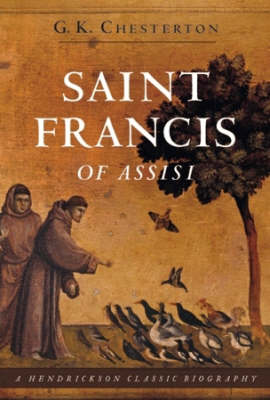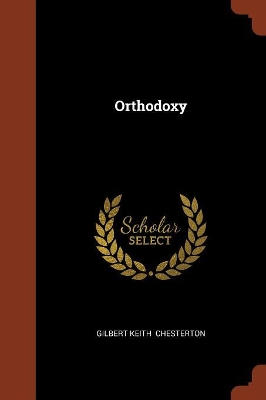Image Classics
2 primary works
Book 10
For Chesterton, Francis is a great paradoxical figure, a man who loved women but vowed himself to chastity; an artist who loved the pleasures of the natural world as few have loved them, but vowed himself to the most austere poverty, stripping himself naked in the public square so all could see that he had renounced his worldly goods; a clown who stood on his head in order to see the world aright. Chesterton gives us Francis in his world-the riotously colorful world of the High Middle Ages, a world with more pageantry and romance than we have seen before or since. Here is the Francis who tried to end the Crusades by talking to the Saracens, and who interceded with the emperor on behalf of the birds. Here is the Francis who inspired a revolution in art that began with Giotto and a revolution in poetry that began with Dante. Here is the Francis who prayed and danced with pagan abandon, who talked to animals, who invented the creche.
Book 12
Chesterton's timeless exploration of the essentials of Christian faith and of his pilgrimage to belief (more than 750,000 copies sold in the Image edition) is now reissued.
For G.K. Chesterton, orthodoxy carries us into the land of romance, right action, and revolution. In Orthodoxy, a classic in religious autobiography, he tells of his pilgrimage there by way of the doctrines of Christianity set out in the Apostles' Creed.
Where science seeks to explain all things in terms of calculation and necessary law, Chesterton argues on behalf of the Christian doctrines of mystery and free will. Sanity, he says, belongs to the poet who accepts the romance and drama of these beliefs rather than to the logician who does not. This sanity is not static. It does not mean merely learning the right doctrines and then lapsing into a refined meditation on them. Chesterton dismisses such an inactive belief as "the greatest disaster of the nineteenth century." For him, right thinking is a waste without right action.
For Chesterton the populist, political ction often spells revolution. He discovers in the doctrines of original sin and the divinity of Christ ever-present seedbeds of revolt in the face of the tyrannies of money and power.

